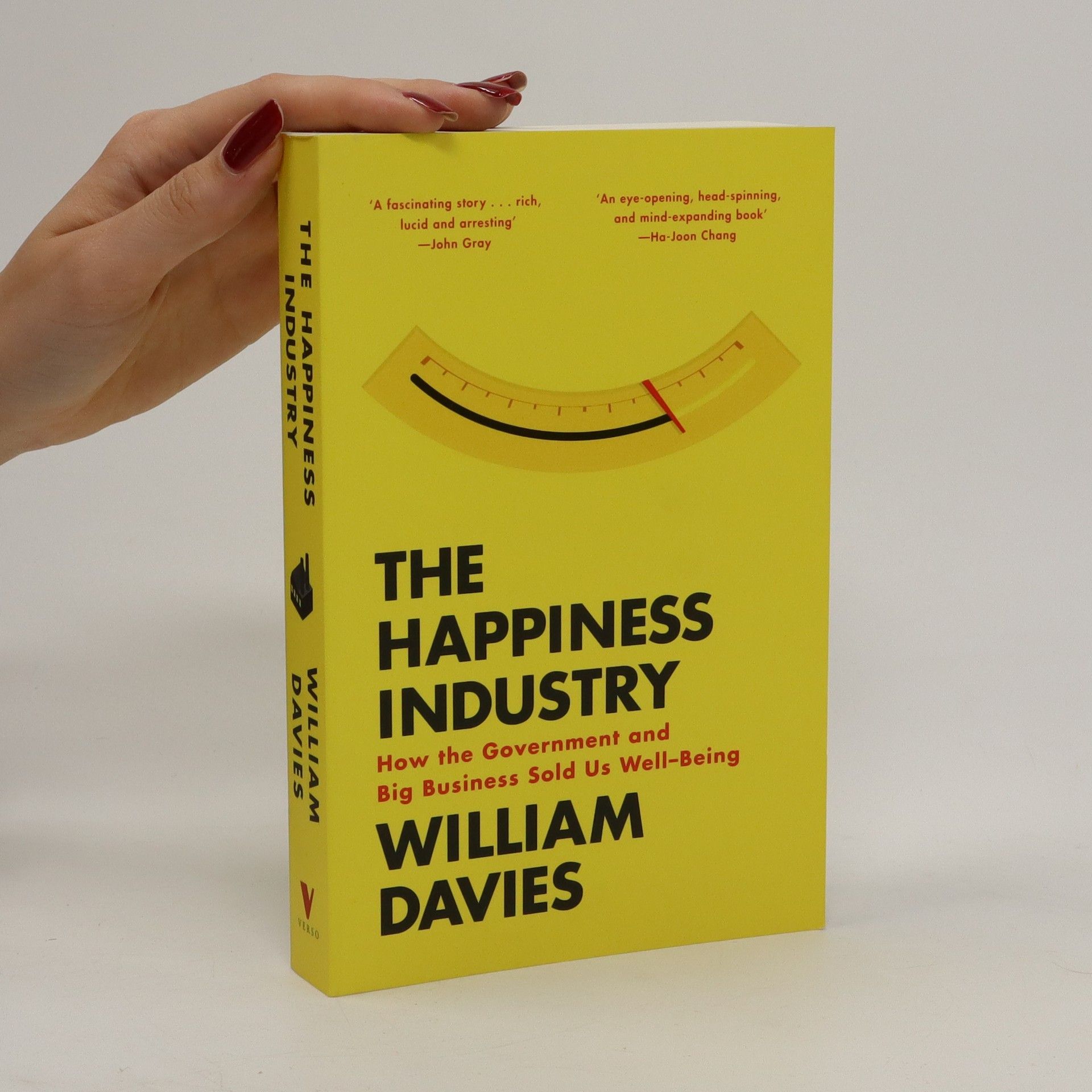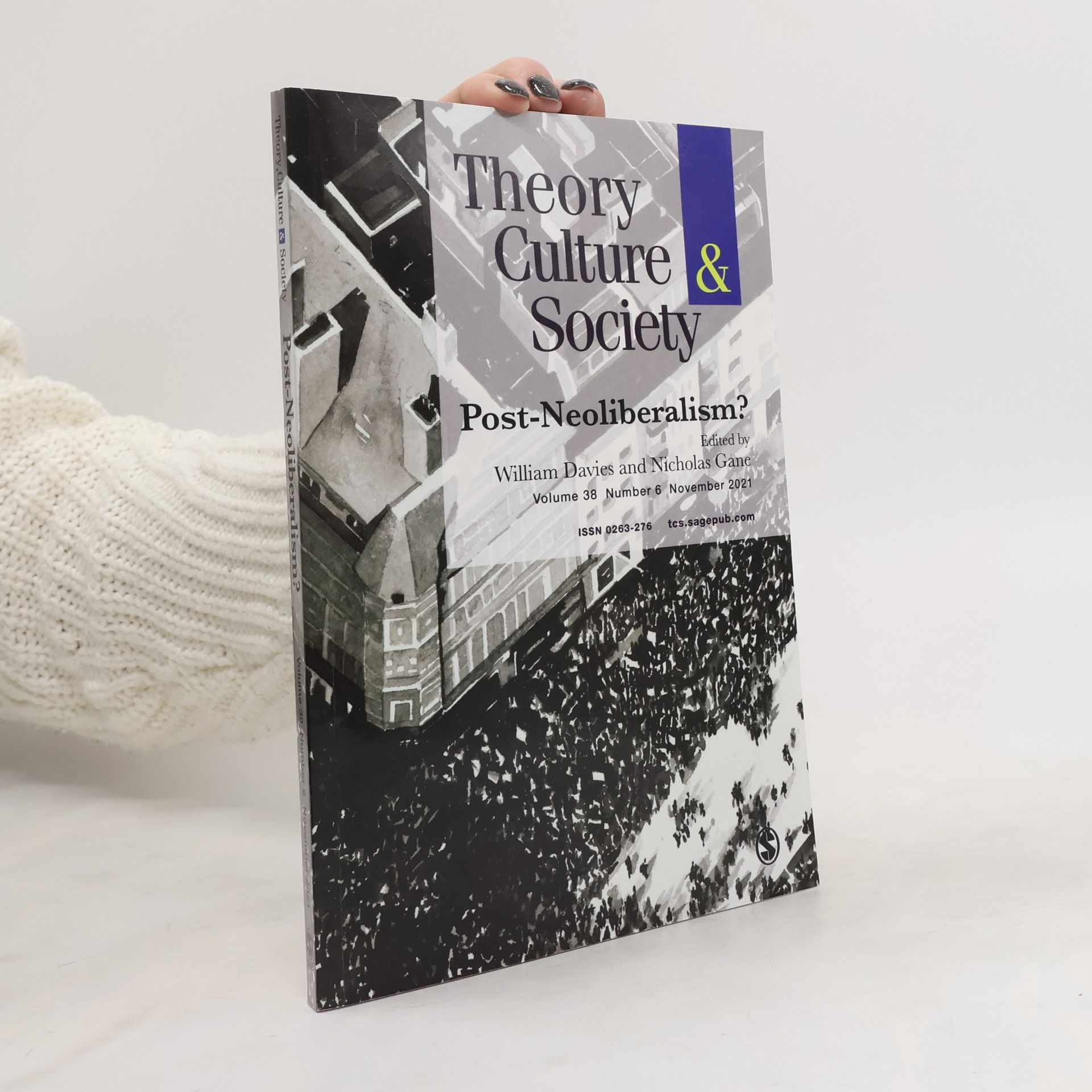Wir befinden uns in einer neuen politischen Ära, die viele ratlos zurücklässt: Wo bisher Zahlen, Daten und Expertisen Grundlage politischer Entscheidungen waren, sind nun Emotionen Trumpf. Ob Donald Trump in den USA, der Front National in Frankreich oder die AfD in Deutschland – überall greifen Populisten die Ängste der Menschen auf und sind mit ihren gefährlichen Ideologien auf Erfolgskurs. Doch wie konnte es dazu kommen, dass statt objektiver Größen wie Arbeitslosenzahlen oder Wirtschaftswachstum plötzlich Wut und Angst über unsere Zukunft entscheiden? William Davies erklärt unter Einbeziehung ökonomischer, philosophischer und politischer Theorien, wie es zum »Niedergang der Vernunft« und dem »Siegeszug der Gefühle« kommen konnte.
William Davies Bücher
William Davies ist ein anerkannter Autor, dessen Texte in führenden Publikationen wie der New Left Review, Prospect und der Financial Times erschienen sind. Als Dozent für Politische Ökonomie an der Goldsmiths, University of London, bietet er seinen Lesern tiefe Einblicke in komplexe wirtschaftliche und politische Systeme. Seine Analysen werden für ihre Stringenz und ihre Fähigkeit, aktuelle gesellschaftliche Probleme zu beleuchten, geschätzt.






Nur nicht aufregen!
- 300 Seiten
- 11 Lesestunden
The Arctic Diaries
- 68 Seiten
- 3 Lesestunden
A poetic project of preservation and sense of place. Rich imagery and language dives deep into the lives of coastal communities in the far north of Norway, from debut poet, Melissa Davies
Magyar-Angol Társalgás, Hungarian English phrase book
- 160 Seiten
- 6 Lesestunden
Hungarian - English Phrase Book (Magyar-angol társalgás)
The Practical Negotiation Handbook
- 248 Seiten
- 9 Lesestunden
Lead successful and lasting negotiations of any size with confidence using this five-step, solution-focused process based on decades of international experience.
What just happened and how did we get into this mess? Since the 2016 referendum, the UK has been in a crisis of its own making. But there are more reasons for this than Brexit alone. A wave of disruption has hit political parties, the mainstream media, public experts and all kinds of officials. Along the way, there have been dramatic and sometimes shocking events: the burning of Grenfell Tower and the Windrush scandal, the rise and fall of the Brexit Party, Boris Johnson’s Conservative purge and his resounding election victory. The state’s response to the pandemic was a further sign of how abnormal things had become. As the ‘mainstream’ of politics and media has come under attack, the basic norms of public life have been thrown into question. Authoritarian and nationalist forces advance as liberalism recedes. This Is Not Normal takes stock of a nation that no longer recognises itself. Davies finds the narrative sense behind apparently chaotic and irrational events, extracting their underlying logic and long-term causes. We are witnessing the combined effects of the 2008 financial crash, the failure of the British neoliberal project, the dying of Empire, and the impact of the changes that technology and communications have had on the public sphere. How the nation revives from the economic and political shocks of the lockdown remains uncertain. This is an essential book for anyone who wants to make sense of the current moment.
The happiness industry. How the government and big business sold us well-being
- 320 Seiten
- 12 Lesestunden
“Deeply researched and pithily argued.” —New York Magazine “A brilliant, and sometimes eerie, dissection” of ‘the science of happiness’ and the modern-day commercialization of our most private emotions (Vice) Why are we so obsessed with measuring happiness? In winter 2014, a Tibetan monk lectured the world leaders gathered at Davos on the importance of Happiness. The recent DSM-5, the manual of all diagnosable mental illnesses, for the first time included shyness and grief as treatable diseases. Happiness has become the biggest idea of our age, a new religion dedicated to well-being. Here, political economist William Davies shows how this philosophy, first pronounced by Jeremy Bentham in the 1780s, has dominated the political debates that have delivered neoliberalism. From a history of business strategies of how to get the best out of employees, to the increased level of surveillance measuring every aspect of our lives; from why experts prefer to measure the chemical in the brain than ask you how you are feeling, to why Freakonomics tells us less about the way people behave than expected, The Happiness Industry is an essential guide to the marketization of modern life. Davies shows that the science of happiness is less a science than an extension of hyper-capitalism.
Hungarian-English Phrase Book
- 157 Seiten
- 6 Lesestunden
Theory, Culture & Society 6/2021
Post-Neoliberalism?
Goresgyn Dicter a Thymer Flin
- 300 Seiten
- 11 Lesestunden


